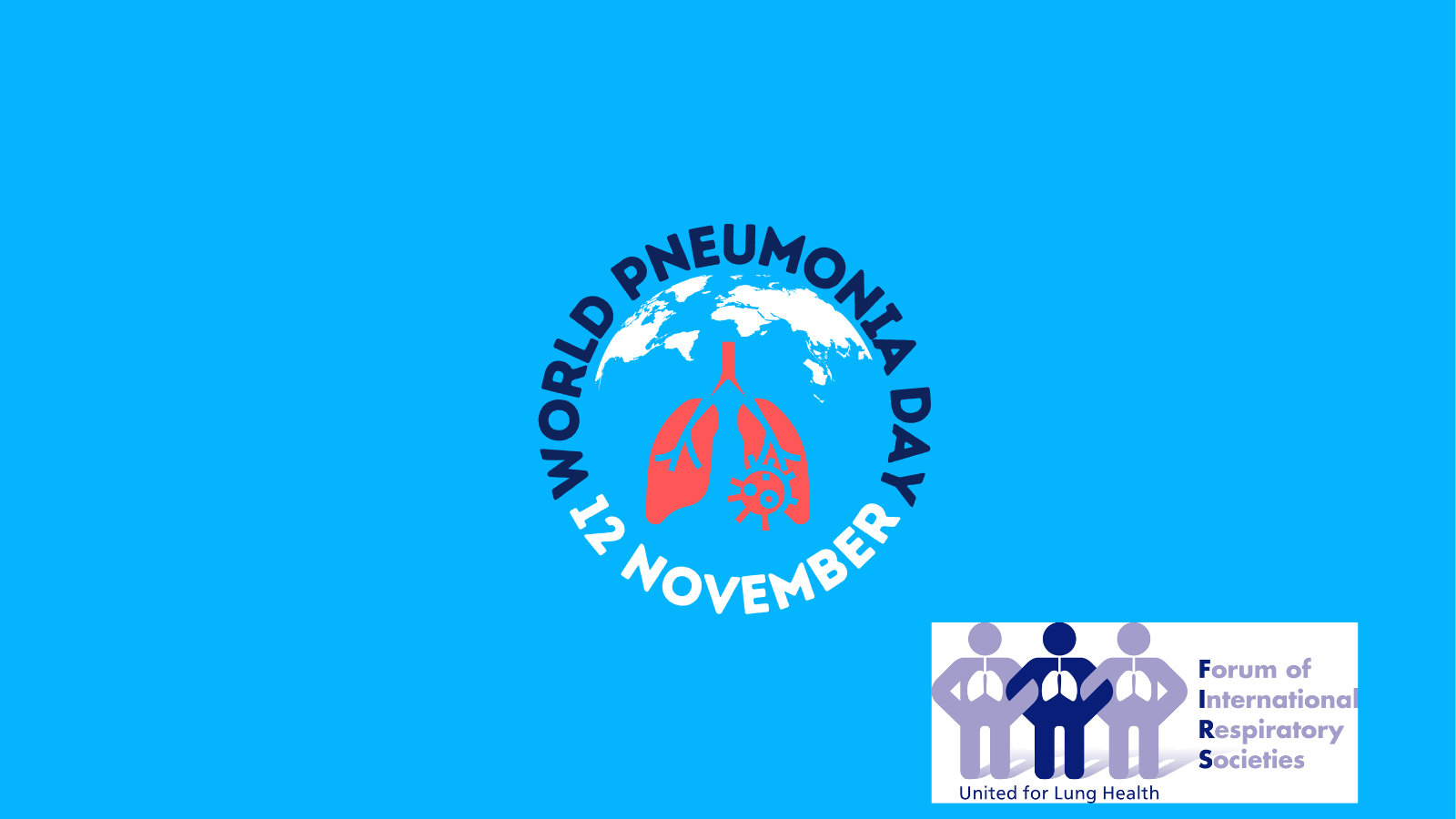12 November, 2024
On World Pneumonia Day, 12 November, 2024, the Forum of International Respiratory Societies (FIRS), of which ERS is a founding member, is calling for urgent action to prevent pneumonia deaths among high-risk groups – particularly children younger than five years and older people. New effective preventive interventions are available, but these are still inaccessible in many low and middle-income countries (LMICs).
Prof. Heather Zar, of the Pan African Thoracic Society (PATS) Executive Committee, a FIRS member, said: “New, highly effective interventions to prevent respiratory syncytial virus (RSV) pneumonia in infants and young children have recently become available and can substantially reduce the burden of childhood pneumonia and mortality. However, access and affordability in LMICs is crucial to reduce global inequity and promote health for all children, especially as most severe illness occurs in LMICs.”
In 2021, pneumonia claimed the lives of 2.2 million people including 502,000 (23%) children aged less than 5 years and 152,000 (7%) newborn babies. The pneumonia burden remains unacceptably high, especially as most deaths are preventable. In addition, early life pneumonia may lead to poorer health through life and contribute to the development of chronic respiratory disease in adulthood.
Pneumoniae (pneumococcus) remains one of the most important bacteria causing pneumonia across age groups, while RSV is a major cause of pneumonia and hospitalization in children and older people. However, there are now effective vaccines for these. Pneumococcal conjugate vaccine, a highly effective vaccine preventing pneumonia from S pneumoniae has been available for over two decades but is still not accessible to many children in poor areas. New, highly effective vaccines against RSV are now available. These include vaccines specifically for older adults, a vaccine for pregnant women, and a long-acting antibody to protect infants and young children. However, there is very limited availability of these in LMICs despite the large number of children and older adults developing severe pneumonia in these countries and excellent protection offered by vaccination.
Most deaths occur in the poorest populations in LMICs. Key risk factors for pneumonia include air pollution, malnutrition, smoke exposure, HIV infection, and low vaccination rates. For young children, prematurity and lack of breastfeeding are additional risks. Limited access to effective treatment of pneumonia is also a concern, especially in many LMICs, where healthcare facilities and oxygen systems are often unavailable, particularly for children.
Although pneumonia deaths have substantially declined over the past decade, urgent efforts are still needed to improve access to effective prevention and treatment. On World Pneumonia Day, FIRS is calling on governments and partners to:
- Ensure equitable and sustained access to vaccines against the commonest pathogens.
- Ensure access to new highly effective preventive interventions against RSV for infants and young children globally.
- Strengthen health systems to deliver interventions which reduce pneumonia deaths, including provision of effective vaccines, antibiotics and oxygen delivery systems.
- Strengthen national and international commitment to support interventions against the leading risk factors for pneumonia.
- Improve support for research into cost-effective interventions to prevent and treat pneumonia in LMICs.





